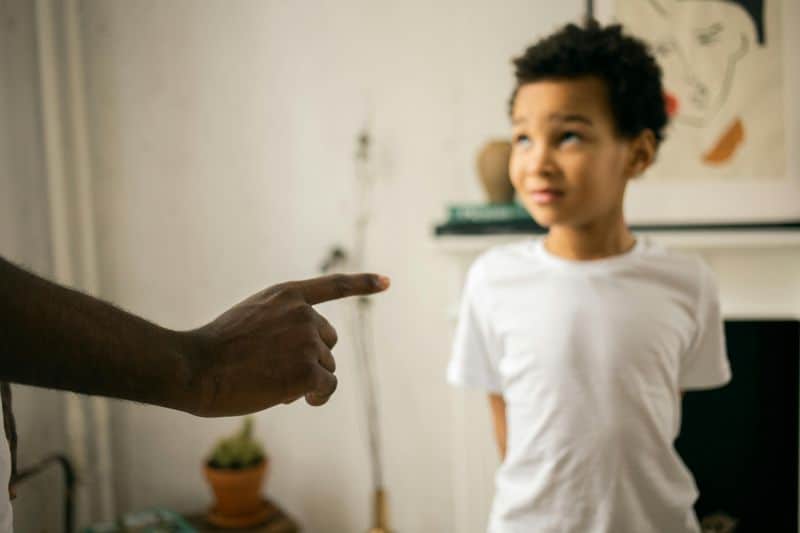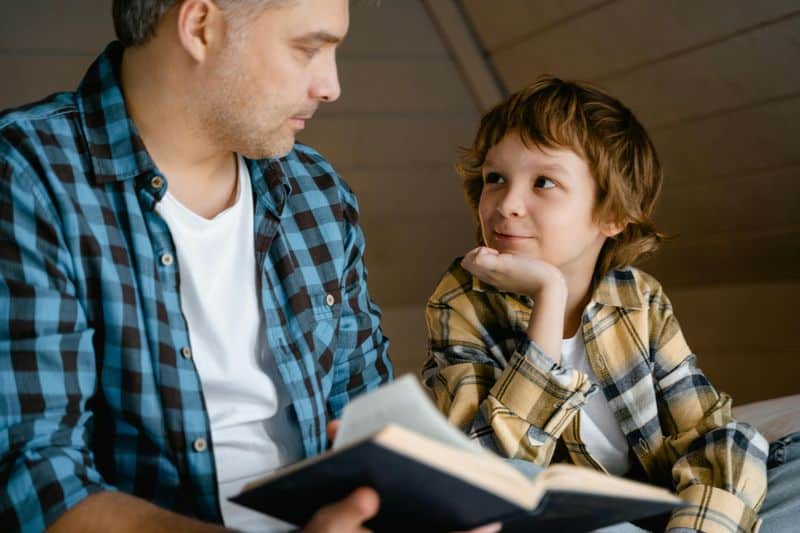Kids are like tiny detectives, constantly observing the world with fresh eyes and uncensored curiosity.
While adults get caught up in bills, schedules, and responsibilities, children are tuning into the subtle energies and unspoken truths all around them.
Their spiritual radar and emotional intelligence often operate at frequencies grown-ups have long forgotten how to access.
1. Mood Auras Around People
Children see the invisible emotional clouds that hover around adults. That colorful glow you’ve forgotten how to perceive? Your kid is reading it like a picture book, sensing whether you’re truly happy despite your smile or actually sad beneath your laughter.
A child might suddenly ask if you’re upset when you thought you were hiding it perfectly. They haven’t learned to ignore these energy fields yet, so they respond to what you’re actually feeling rather than what you’re saying.
Next time your little one seems mysteriously clingy or gives you unexpected comfort, they might be responding to your aura that’s screaming for support while your mouth says “I’m fine."
2. Which Adult Actually Likes Them
Forget your polite social niceties – kids have an uncanny radar for detecting genuine affection versus fake attention. That neighbor who always brings candy but never makes eye contact? Your child already knows the score.
Adults often believe their performative interest in children goes undetected. Meanwhile, kids are collecting mental notes about which grown-ups lean in when they speak, who remembers their stories from last time, and whose eyes light up genuinely when they enter a room.
This superpower explains why some adults consistently win children over while others—despite expensive gifts and loud enthusiasm—somehow never earn that coveted trust and spontaneous hugs.
3. When Adults Are Spiritually Disconnected
Children instinctively recognize when grown-ups have lost touch with wonder and magic. They notice the adult who rushes past beautiful flowers without seeing them or who can’t hear the whispers of the wind in trees anymore.
Kids observe with puzzlement as adults worry about trivial matters while missing the rainbow, butterfly, or perfect cloud formation right above them. They wonder why grown-ups stop looking at stars or cease to feel excitement about thunder.
This disconnect explains why children sometimes try desperately to redirect adult attention to seemingly insignificant natural wonders. They’re not just being childish – they’re attempting to reconnect you with the spiritual awareness you’ve abandoned.
4. Family Power Dynamics
The invisible hierarchy within families might seem hidden to adults, but children map these complex relationships with remarkable accuracy. They know exactly who really makes the decisions, regardless of who claims to be in charge.
Kids notice which parent defers to the other during disagreements. They track whose opinion carries more weight at the dinner table and who apologizes first after arguments. Even the subtlest dominance patterns between grandparents, parents, and extended family members become part of their social intelligence database.
This awareness explains why children often strategically approach specific adults for particular requests. They’ve already calculated who holds the real authority on different matters long before adults realize these patterns themselves.
5. Hypocritical Behaviors
"Do as I say, not as I do” might be the mantra, but kids are keeping detailed scorecards of adult inconsistencies. That lecture about healthy eating delivered while munching on hidden cookies? Completely logged and filed away.
Children possess an almost supernatural ability to detect when adults contradict their own rules. They silently observe parents who demand honesty but tell white lies, who preach patience but honk in traffic, or who insist on screen-time limits while mindlessly scrolling through social media.
Far from missing these contradictions, kids are building comprehensive mental databases of adult hypocrisy. These observations eventually form the foundation for those devastatingly accurate callouts that leave grown-ups stammering for explanations.
6. Authentic Versus Performative Kindness
Adults often miss the difference between genuine compassion and social performance, but children never do. Kids immediately distinguish between the neighbor who helps others for Instagram versus the quiet soul who leaves anonymous gifts.
Their radar detects the subtle difference in energy between someone who donates loudly for recognition and someone whose eyes genuinely soften at others’ struggles. Children watch how adults treat service workers, animals, and people who can offer nothing in return.
This explains why some adults whom society celebrates as generous sometimes face unexpected resistance from children. The kids aren’t being difficult – they’re responding to the authentic kindness frequency rather than the impressive but hollow social display.
7. Unspoken Relationship Tensions
Long before the adults acknowledge relationship problems, children have already sensed the shifting emotional weather. Those supposedly private arguments behind closed doors? Kids have mapped the emotional aftermath with perfect precision.
Children detect minute changes in how parents look at each other, the microsecond pauses before responses, or the subtle cooling of affectionate gestures. They notice when hugs become shorter, when compliments disappear, or when conversations grow increasingly practical rather than playful.
This awareness explains why children sometimes become anxious or act out during relationship difficulties that adults believe they’ve successfully hidden. The kids aren’t responding to what they’ve been told – they’re responding to the emotional undercurrents they’ve been swimming in all along.
8. When Adults Are Faking Interest
The distracted “uh-huh” while scrolling through phones doesn’t fool kids for a second. Children possess an extraordinary ability to distinguish between genuine engagement and polite pretending.
They notice immediately when an adult’s eyes glaze over during their stories or when questions about their elaborate explanations lack relevant follow-ups. Kids track whether grown-ups remember the names of their imaginary friends or recall important details from previous conversations.
This detection system explains why some adults consistently earn children’s enthusiastic sharing while others receive only minimal responses despite asking all the right questions. Kids aren’t being selective – they’re simply matching their emotional investment with the authentic attention they receive.
9. Adult Fear Frequencies
Children pick up on adult anxieties with the precision of emotional Geiger counters. That subtle tension that appears in your body when walking through certain neighborhoods or meeting specific people? Your child has cataloged it completely.
Kids notice when parents check locks multiple times, flinch at loud noises, or tense up around certain family members. They absorb the unspoken fears about money when bills arrive, health concerns that manifest as excessive caution, or social anxieties that emerge during particular gatherings.
This sensitivity explains why children sometimes develop mysterious fears about seemingly random situations. They’re not being irrational – they’re responding to the fear frequencies adults are broadcasting but denying, picking up transmissions from emotional radio stations adults pretend aren’t playing.
10. Who Truly Listens to Them
Children maintain mental leaderboards of adults ranked by listening quality. The difference between someone who hears their words versus someone who truly receives their meaning is crystal clear in their social accounting.
Kids instantly recognize which adults remember their preferences, acknowledge their feelings without dismissing them, and respond to the emotion behind their questions rather than just the surface content. They treasure grown-ups who maintain eye contact, put phones away, and follow up on previous conversations.
This awareness explains why certain adults—often not the ones with impressive titles or authority positions—become the chosen confidants for children’s most important secrets and concerns. Kids naturally flow toward the rare adults who haven’t forgotten how to listen with their entire being.











